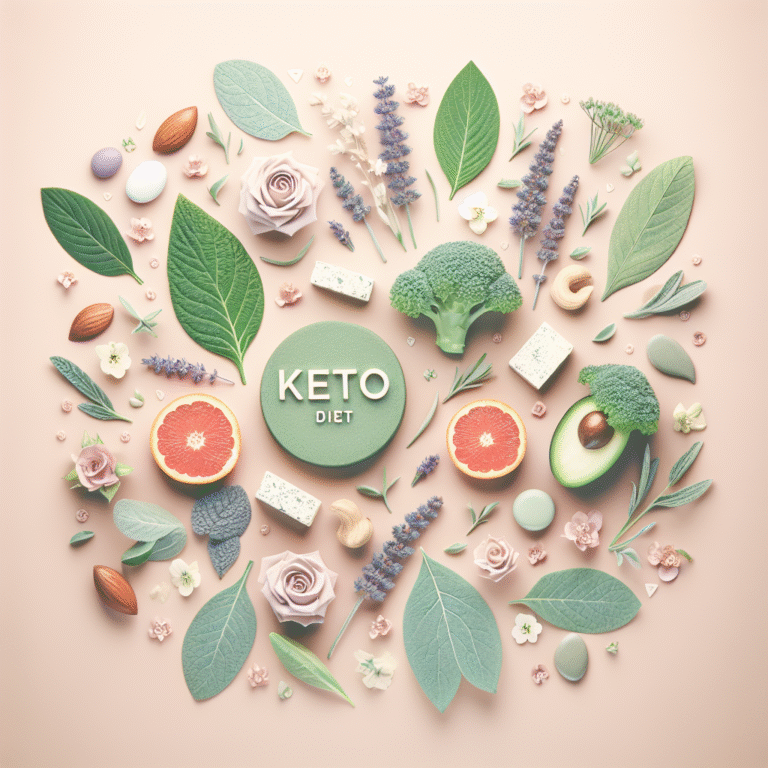Title: The Best Supplements to Take While on Keto
Switching to a ketogenic diet can be a game changer, but also a daunting task, as many keto-dieters can attest. Imagine this scenario: everything was smooth until fatigue and cravings started creeping in, making it hard to keep up with the demands of everyday life. This scenario is all too familiar for many embarking on a keto journey. Fortunately, there are science-backed supplements that can smooth the transition and support dietary success.
Understanding the Keto Struggle
When starting a keto diet, the initial excitement often gives way to challenges such as electrolyte imbalance, nutrient deficiencies, and a transition phase commonly referred to as the “keto flu.” These hurdles can dishearten even the most determined individuals, but understanding which supplements can alleviate these issues is crucial for lasting success.
Why Supplementation is Crucial on Keto
Despite the effectiveness of a high-fat, low-carb diet in promoting weight loss and enhancing mental clarity, the restrictive nature of this diet can lead to nutritional gaps:
– Electrolyte Imbalance: A keto diet changes how the body processes water and electrolytes, leading to imbalances, which can cause fatigue, cramping, and nausea.
– Vitamin Deficiencies: The reduction in carbohydrate intake can lead to lower levels of certain vitamins typically derived from fruits and grains.
– Mineral Losses: Low-carb diets can increase urination, thereby causing loss of key minerals necessary for optimal body functions.
Key Supplements to Consider
Science-backed supplements can mitigate these challenges, making it easier to adhere to and benefit from the keto diet. According to the National Institutes of Health ([NIH](https://www.nih.gov/)) and [Mayo Clinic](https://www.mayoclinic.org/), the following are crucial for maintaining nutritional balance:
1. Electrolytes
– Electrolytes like sodium, potassium, and magnesium are essential. They combat the effects of dehydration, help nerve functioning, and regulate bodily fluids.
– A study published by the [Mayo Clinic](https://www.mayoclinic.org/) highlights that proper electrolyte levels prevent symptoms like “keto flu.”
2. Omega-3 Fatty Acids
– Essential omega-3 fatty acids, often derived from fish oil, support heart health, reduce inflammation, and enhance mood.
– Research by the [NIH](https://www.nih.gov/) stresses the importance of omega-3s for mitigating the risk of cardiovascular diseases on high-fat diets.
3. MCT Oil
– Medium Chain Triglycerides (MCT) are rapidly absorbed, providing a quick energy source and enhancing ketone production.
– Studies show MCT oil can bolster weight loss by boosting metabolism and increasing satiety.
4. Vitamin D
– Vitamin D is critical for bone, immune, and muscle health, with deficiencies common in low-carb diets.
– According to findings by the [NIH](https://www.nih.gov/), supplementing with vitamin D is necessary, particularly where sun exposure is limited.
5. Magnesium
– Key for muscle function and energy production, magnesium deficiency is common on keto due to limited dietary sources.
– [Mayo Clinic](https://www.mayoclinic.org/) research indicates many individuals do not meet daily recommended magnesium intake, necessitating supplements.
Real-Life Transformation: Emily’s Story
Emily had struggled with her weight for years, and the ketogenic diet seemed like a promising solution. Despite initial successes, she faced irritability, low energy, and weight-loss plateaus after hitting her third month. Under the guidance of a nutritionist, she began incorporating supplements like electrolytes and omega-3s, leading to:
– Improved energy levels and mood.
– Enhanced mental clarity, especially in the afternoon slumps.
– Continued successful weight loss, with an extra 15 pounds shed over the next three months.
Supplement Comparison Table
| Supplement | Benefits | Recommended Dose | Best Sources |
|---|---|---|---|
| Electrolytes | Prevents keto flu, maintains fluid balance | Varies by individual | Salt, electrolyte tablets |
| Omega-3 | Reduces inflammation, supports heart health | 1,000–2,000 mg/day | Fish oil, flaxseed oil |
| MCT Oil | Boosts ketone production, aids weight loss | 1–3 tablespoons/day | Coconut oil, MCT oil |
| Vitamin D | Supports bone, immune, muscle health | 800–2,000 IU/day | Supplements, fortified foods |
| Magnesium | Supports muscle function, fights fatigue | 200–400 mg/day | Magnesium tablets, nuts |
FAQ
Q: Can I meet my keto nutritional needs through diet alone?
A: While it’s possible, supplementation ensures you meet daily nutritional requirements, which is especially challenging when carbs are restricted.
Q: Do I need all these supplements from day one?
A: It depends on individual needs, but electrolytes are highly recommended from the start to prevent “keto flu.”
Q: How do I choose high-quality supplements?
A: Look for third-party tested products with minimal additives, and consult a healthcare professional for personalized advice.
Conclusion: Supporting Your Keto Journey
Transitioning to a ketogenic diet involves more than just cutting carbs. Utilizing the right supplements can be pivotal in overcoming common struggles and enhancing your overall health. By incorporating essential supplements like electrolytes, omega-3s, and MCT oil into your routine, you can maximize the benefits of keto and help prevent nutritional deficiencies.
Call to Action: Ready to take your keto journey to the next level? Start by consulting with a healthcare provider to tailor your supplement plan for optimal results. Embrace the path to better health today!
Bonus Tips for a Successful Keto Journey
1. Stay Hydrated: Drink plenty of water daily. Dehydration can exacerbate the side effects of starting a keto diet.
2. Monitor Macronutrient Intake: Use apps to track your intake of fats, proteins, and carbs, ensuring you’re getting the right amounts to stay in ketosis.
3. Plan Your Meals: Meal prepping reduces the stress of daily decision-making and ensures you always have keto-friendly options available.
4. Adapt Slowly: Gradually reduce carbs before starting a strict keto diet to minimize the impact of the transition phase.
5. Incorporate Healthy Fats: Focus on high-quality fats like avocados, olive oil, and nuts for more nutrients and sustained energy levels.
Extra FAQ
Q: How long does the “keto flu” typically last?
A: The “keto flu” usually lasts from a few days to a week as your body adapts to using fats for fuel instead of carbohydrates.
Q: Can I take exogenous ketone supplements?
A: Exogenous ketones can potentially help ease the transition into ketosis, but it’s best to consult with a healthcare professional to assess if they’re suitable for you.
Q: Are there any contraindications for taking these supplements?
A: Some individuals, such as those with kidney issues or on certain medications, need to be cautious with supplements like electrolytes and should seek medical advice.
Q: Can I eat fruits on a keto diet?
A: Yes, but in moderation. Opt for lower-carb fruits like berries, which are less likely to disrupt ketosis.
Lifestyle Advice
– Regular Exercise: Pair your diet with strength training and aerobic exercises to boost metabolism and support muscle maintenance.
– Mindful Eating: Eat slowly and mindfully to enhance digestion and satisfaction from meals.
– Stress Management: Practice stress-reduction techniques such as meditation, yoga, or deep breathing exercises to prevent stress-induced cravings.
– Social Support: Engaging with a community or finding a keto buddy can provide motivation and valuable tips to maintain your dietary goals.
– Healthcare Guidance: Regular consultations with nutritionists or dietitians can offer tailored advice and adjustments as your body responds to the diet.
By embracing these tips and advice, you can significantly enhance your ketogenic experience, making it easier to maintain and enjoy the benefits of this lifestyle transformation.






